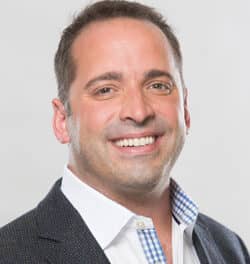 By Eileen Korte, Licensing Manager, Motion Picture Licensing Corporation
By Eileen Korte, Licensing Manager, Motion Picture Licensing Corporation
For many people, the orthodontist’s office is not a favorite destination. Kids get restless while waiting to be called. In this day and age, magazines and Legos don’t as easily entertain children at the doctor’s office. To help children feel more comfortable, many orthodontists around the country are now showing children’s movies in both their waiting and exam rooms. Seeing familiar children’s characters can calm an apprehensive child or entertain a restless one.
But for orthodontists, it isn’t always just young children in the waiting rooms. Orthodontists can also play family movies to entertain the teens and adults that come to their offices. During an hour-long teeth-whitening session or while getting braces put on or removed, patients can be put at ease by watching a movie.
Movies also have the added benefit of directing the patient’s attention (and mouth). While many teenagers and adults may be tempted to entertain themselves with their smart phone during an exam, such activities make it difficult for orthodontists to navigate a patient’s mouth. Adjusting brackets is much easier when a patient’s gaze is focused on a strategically placed screen.
Although it may seem simple and relatively harmless enough to put in a personal DVD and play it throughout the day, it’s not legal. For movie showings like this, the law requires a public performance license.
According to the US Copyright Act, Title 17 of the United States Code, copyrighted motion pictures and other programs that are available for rental or purchase in any legal format, are intended for personal, private, home use only. Exhibitions outside of the home, such as within a medical office, require a public performance license. Regardless of whether or not an admission fee is charged, this legal requirement applies equally to for and non-profit organizations. Fines for non-compliance start at $750 for each inadvertent infringement and go as high as $150,000 for each egregious violation.
The length of the program does not matter. If patients are watching Finding Nemo or The Blues Brothers, the office will need to have a public performance license. Fortunately, a copyright license- is easy to obtain.
A typical blanket license provides legal coverage for over 400 studios and producers, ranging from major Hollywood studios to producers catering to children and teenagers. When an office has the appropriate license, staff can obtain movies from any legitimate source, (like Netflix, Blockbuster, etc.), and show movies and other programs without any further reporting.
With a public performance license, your patients might actually look forward to their next visit to watch their favorite movie.
| The Motion Picture Licensing Corporation was established more than 25 years ago by motion picture executives to provide public access to the work of the creative community without copyright infringement. The MPLC is the world leader in motion picture copyright compliance, supporting legal access across five continents and more than twenty countries. The MPLC provides the Umbrella License® to more than 250,000 facilities in the United States and over 450,000 worldwide. |











